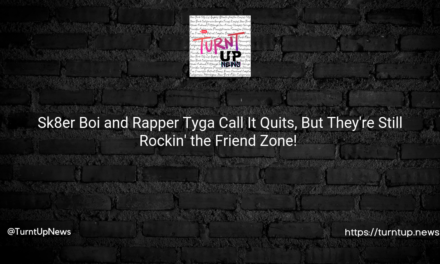🎤✨ Hip-Hop Legend Gangsta Boo’s Unplanned Swan Song: A Toxic Symphony of Fentanyl, Cocaine, and Alcohol 🍾💔
TL;DR: Rap trailblazer, Gangsta Boo, hits her unplanned grand finale at 43, a victim of an unintentional cocktail mix of fentanyl, cocaine, and alcohol. This heartrending, unexpected departure of a music icon sends ripples of shock through the Hip Hop universe. 🌌🎶
The showstopper of our time, Gangsta Boo— the real world’s Lola Mitchell— tragically had her curtain call on New Year’s Day, found unconscious in a Memphis dwelling, never to hit a beat again. Despite frantic resuscitation attempts, she was declared gone on the scene. Her dazzling journey, abruptly cut short, leaves us with a compelling question: How can the music industry, and society as a whole, address substance abuse to safeguard our cherished artists? 🤔
The shocking autopsy report, devoid of any rhythm or rhyme, announces her cause of death: an accidental overdose powered by a lethal trifecta of fentanyl, cocaine, and alcohol. Yet, to truly appreciate the weight of this revelation, we must grasp who Lola Mitchell was behind the glitz of Gangsta Boo.
Gangsta Boo, the rap pioneer, was more than just her stage persona. She was an emblem of the Memphis hip hop scene, an artist who pushed boundaries and consistently brought fresh tunes to the turntables. But, much like the blues that her city is famous for, her life was not without its somber undertones.
In this heartbreaking crescendo, we’re forced to take a step back and view the broader picture: the fatal cocktail was not merely a blend of substances, but rather an indictment of the pervasive culture of drug and alcohol abuse that often haunts the music industry. But what role does the industry itself play in this tragic tapestry? And more importantly, how can we change the tune? 🎶😔
Despite the harsh reality of her untimely demise, Gangsta Boo’s legacy will live on, echoing in her beats and rhymes. Yet, her death inevitably raises the question of the responsibility we all bear, as fans, fellow artists, and society at large. We must challenge the status quo and stimulate a conversation around the potentially deadly undercurrents in the music industry.
In memory of Gangsta Boo, and countless others lost to similar tragedies, we must ask ourselves: isn’t it time we started a new dialogue? Isn’t it time we faced the music and worked to ensure no other artist has to play their unplanned swan song too early? 🎵⏳🎹
Disclaimer: This article does not provide health or substance abuse advice. It is intended for informational purposes only. It is not a substitute for professional medical advice, diagnosis or treatment.
So, readers, what steps can we as a society take to ensure our artists don’t become the tragic heroes of their own stories? 🤔🎤🌹





